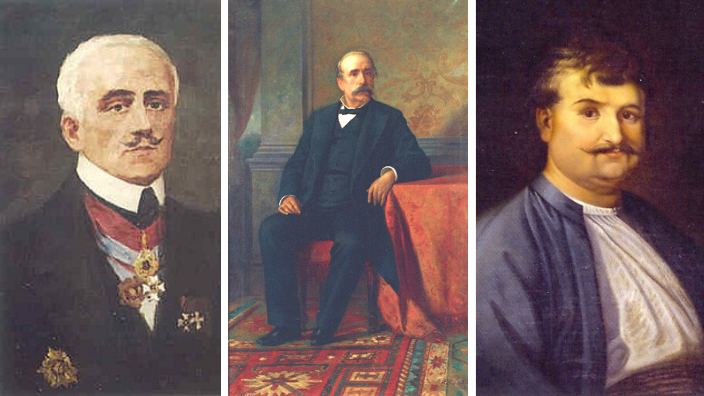By Professor Anastasios M. Tamis*
Hellas initially functioned as a group of compatriot, homodox, homophone people who had for 1500 years been organised in the political system of the city-state, and despite their internal conflicts and any socio-economic and political restrictions, they managed to create and highlight, on behalf of the people of the world, the science, research, political systems, arts, literature, religion and everything, and everything else today that constitutes the basis of most countries of our planet.
It was Alexander the Macedonian and his father Philip, the people who “persuaded” the Greeks to unite and then join the Campaign of the East against the Persians, transplanting Hellas in every neighbourhood of Asia and Africa.
In the years that followed, Hellas, its ideology, the components of its culture, and its dynamics were transplanted into the Eastern Roman State (Byzantium), where they were then reconciled with Christianity and a Richer Hellas emerged, having liturgically grafted the characteristics of its civilization with other elements of the Anatolia.
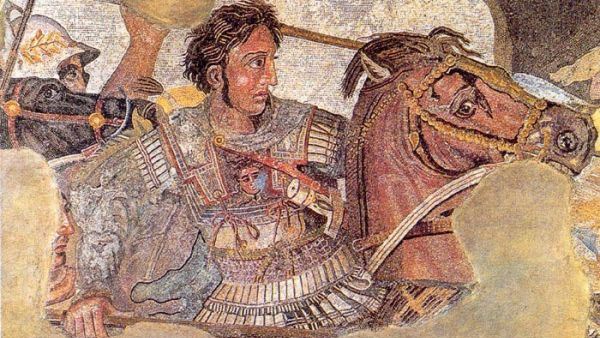
This was followed by the stone years of the Ottoman occupation of about 500 years (1430-1913), where the nation was enslaved, but Hellas as a culture, as a political and social system, as an ideology, was adopted by Europeans and reformed through the Renaissance, initially, and then through Neo-humanism, the Enlightenment and Romanticism, this Greece was presented and established as a European evolution, as a Western World.
However, after 3,500 years of existence of the nation of the Greeks (The Nation), Greece was eventually created. A Greece whose borders had no historical, ethnological, political, and cultural basis. Its borders were shaped by the mighty Powers of the earth, through international treaties. Hellas of the Greeks spread across the coasts of Asia Minor, the Balkans and of course solid Greek populations inhabited the countries of the Black Sea and Europe.
Greece of the Great Powers was confined, as a state structure, to the last rocks of the Balkan Peninsula, where the ancient metropolitan Greek world had essentially lived and flourished, without its colonies, without the Cleruchies and the compact Hellenism of Ionia and Magna Graecia (Calabria and Sicily).
Until 1830 the Greeks were members of a nation without a state, a people without borders, a national entity (identified only religiously as Orthodox), scattered in empires throughout Europe, Asia and Africa. It was still the years of “diastole“, i.e. the expanding system of Empires, before the “systole”, the contracted system, with the creation of Nationalism. This relationship of contraction-expansion of the human rhythm of political maturation has been in place since the Sumerian era, at least 6,000 years ago (currently, President Putin is attempting to expand his state into an empire, trampling on Ukrainian ethnism).
The historical Greek Diaspora in 1830 spread to the area of Anatolia (Asia Minor), the Black Sea countries, Russia, Austro-Hungary, Central Europe, Italy, and the Balkans. When Greece was recognized by the Great Powers of Europe in 1830, it did not have a single kilometer of roads. Not a port, not a hospital. Not a single university. Its productive base was destroyed after ten years of war and the passing of Ibrahim. It had no political tradition of self-determination and democratic governance in the previous two thousand years. It had no government buildings. It lacked any taxation system, land register. It did not maintain trade relations with abroad.
Greece in 1830 was the most impoverished and desperate corner of Europe.
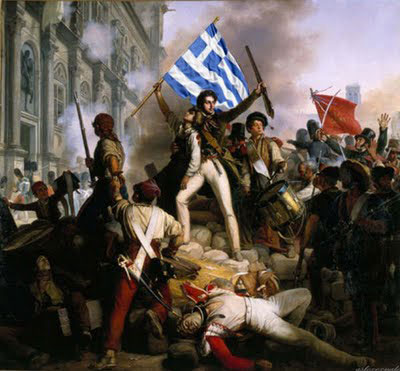
THE SYNDROME OF PSOROKOSTAINA
However, through these ruins and social and political impoverishment, emerged modern Greece, a country that still teaches justice, humanity, freedom, and social progress. Of course, in its last 200 years, Greece had its own course and its own distinct evolution. Modern and contemporary Greece is not the result of a rigid slave trade, nor is it the result of colonial bulimia. Its progress was initially based on its rural world, on its minerals and mainly on its extra-Helladic seafarers, the gigantic pillars of support, i.e. the shipowners, the expatriate Hellenism and the Philhellenes.
In general, our generation grew up in a myth, that of the Psorokostaina. In the schools and in the media, in public gatherings and in the cafes, there was a poor-progressive Greece, a Greece of successive bankruptcies, a Greece of Souris, of Varnalis, of coups d’états, dictatorships, Civil War. A Greece of the murderers of Lambrakis, of the Junta, a Greece in constant political “plaster”, a Greece with rigidities, with corruption, with a client state, with party gangs. Finally, and generally the image of Greece was presented unjustly deformed, deliberately, or unintentionally falsified and corrupted.
In our effort to convince our interlocutors, especially when we feel numb in the face of a state negligence or being in a difficult relationship with the State of the Greeks, we resort to such aphorisms at the expense of our common homeland. But we are making serious mistakes in such an assessment, we are making an unrealistic assessment, without offering any real criteria. Our assessment of Greece is usually emotional, barbarically depressing that causes strong injustices not only to our recent ancestors, but also projects a false image of Greece both inwards and outwards. In the way we perceive Greece of the last 200 years, we often do not have reliable methods to analyze the happenings and most importantly, we ignore or do not want to include all the criteria that shaped the evaluation our modern nation-state.
As to methods: In science there is the concept of “initial conditions”, i.e. the situation prevailing in a system (physical, chemical, biological, social, etc.) at the time when an experiment or a systematic observation has begun. Different initial conditions cause different results. Without being aware of the initial conditions or deliberately wanting to reduce “self-destructively” our country (we Greeks are competitive, non-aligned, and self-destructive), we make a comparison with emotional charge. We are trying to degrade, out of ignorance I would say in good faith, our country, the happenings in Greece, to degrade our cities, to denigrate the quality of life, health, and the prevailing justice, to present our cities as inferior in quality, in appearance and in beauty.
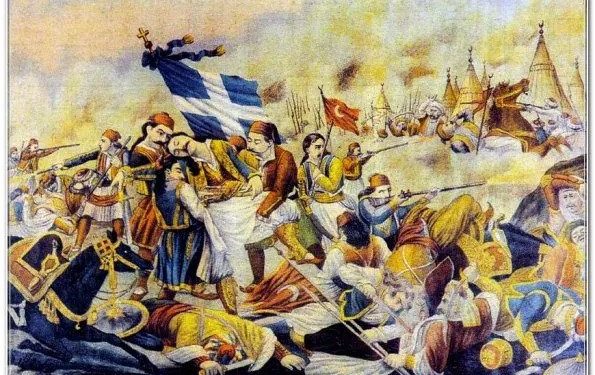
We ignore or forget that Madrid, London, Paris, Amsterdam, or Brussels, which we admire and compare with Athens and Thessaloniki, were built mainly with the proceeds of colonial empires, which allowed the metropolises to accumulate the wealth that financed the creation of the bourgeoisie, in an era without mass production technology and industry, at a time when the slave trade and the humiliation of man were constituting government policies. The cities in Greece were built by free people, without slave trade and colonial economies. They were built by the Greeks and Philhellenes of the Diaspora, enriched with architectural ornaments mainly by the Greek Benefactors of the Diaspora. Museums, beautiful buildings, hospitals, cultural centers, girls’ schools, gymnasiums, chambers of Commerce and the Arts, were built by the sensitized expatriate, the expatriate Hellenism. The ship owners and the leaders of the Greek Communities of the Balkans, Europe and The Americans were the first to be convinced by Rigas and Korais of the freedom of the Greeks. The first revolutions against the Turks did not start from Kalamata and Patras, as they are occasionally presented in our history, but by the Greek ruling leaders of Moldova, Wallachia, and Romania. In Iasi of Romania fell the young lads of the Sacred Band; from Italy came the first volunteers against the Turks in Epirus. From the Hellenism of the Diaspora the Filiki Eteria was founded, from the Hellenism of the Diaspora the first Philhellenes were initiated in Austria, Switzerland, and France. And when the Greek Revolution collapsed and Braimis was leveling Greece, they were again the leaders of the Diaspora Hellenism who kept the Great Powers in the host countries actively against the Ottomans, who were pushing them to rally against the Turks.
THE CONTEMPORARY GREECE
But let’s also look at some evidence that shows how unfair we are, when we portray with self-sarcasm and unjust manner, all that Hellenism has achieved, which compose the real comparative picture of Greece. What Hellenism achieved, at least after the Second World War, is indeed extremely remarkable and should make us proud, us and our children. Immediately after the war and the Civil War, it was the Greek shipowners along with the USA who rescued the collapsed economy of Japan. It was Greece of 1950-1960 that stood up as the most growing economy in the world, which was historically invoked as the “The Greek Miracle”. It was Hellenism (Greek and Cypriot) that created today the largest naval power in the world, representing 34% of the world’s ship power. It was the small Greece that raised the United Europe, almost as a founding member. It was Greece that entered one of the first countries in the Eurozone.
But, even at the level of the common man, the citizen, Greece is a model, a motif, and an example, in all aspects of human life. According to the U.N. Population Service, Greece has the 19th highest life expectancy in the world and the 10th highest in Europe. Specifically, the life expectancy of the Greek is 82.9 years, while that of the USA is 79.11 years. The difference of 3.69 years in life expectancy is significant when one considers that it corresponds to the difference that the USA (79.11) has with Mexico (75.41) and Nicaragua (75.23), countries that belong to the group of countries of the so-called third world. To put it simply, the difference that the USA has from Nicaragua in life expectancy is the same difference that Greece has with the USA. Life expectancy holistically reflects the quality of life of a society because it incorporates, in one number, the health system, availability and quality of food, quality of housing, education, security and crime, etc. It is simple: the more peaceful, solidarity-based, and prosperous a society is, the longer the life expectancy; for everyone, not just for the elite and the rich people.
Greece’s health system, not only the ESY but also the private health institutions, based on the World Health Organization (WHO) ranking, is the 14th most successful health system in the world [Source: https://www. who. int/healthinfo/paper30.pdf? ua=1] and the 8th in Europe. Here are some of them: The Netherlands 17, Britain 18, Switzerland 20, Sweden 23, Germany 25. The United States of America is in position 37. Because they may produce the world’s leading medical technology, but they are in position 97 in the world in the average American’s access to quality health services.
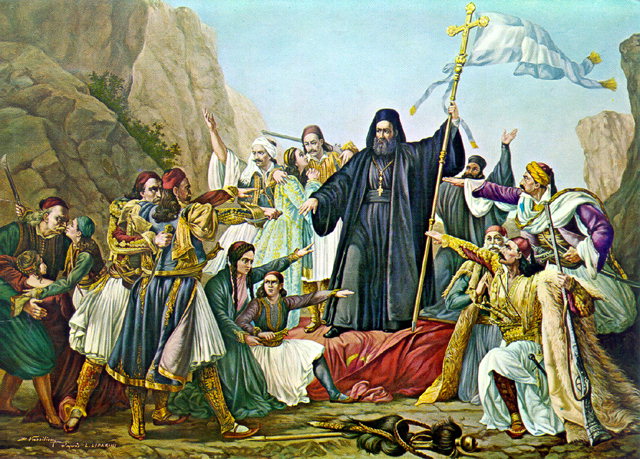
Freedom House is an American non-profit organization, which since 1941 creates a global ranking of countries based on the personal and civil liberties of their citizens and funds actions to promote freedoms around the world. In 2021, Greece is ranked among the “Free” countries of the world, with a score of 87 out of 100. The United States ranks 13 places below Greece with a score of 83 at the 100. It is also worth noting here the following: the last time the election result in Greece was contested was in 1961. Today, we have reached a point of democratic maturity and administrative efficiency that two hours after the closure of the ballot box we know with great confidence the winner and by the next day at noon we know the full composition of the new parliament, that is, who were elected MPs. By contrast, in other countries, even the U.S., the election result has been officially challenged at least three times. Even in the field of freedom of justice, Greece holds a prominent position and surpasses the U.S. by at least 35 points in the world rankings. Those guilty of Lambrakis’ murder were arrested, tried, convicted, and imprisoned in a few months. The murderers of Pavlos Fyssas are in prison, as are the much-discussed murderers of November 17th. In the U.S., the murderers of dozens of African Americans in the 1960s and 1970s, and most recent years, were never arrested, never tried. They remain still “unknown” and their crimes “unsolved”!
Of course, in the field of organization, the so-called “civil liberties”, in the area of the creation of a citizen’s consciousness (the Greeks remain unrepentantly private, selfish and self-centered), we are still behind compared to other Western countries. Here it is necessary for the provided education to reflect on its responsibilities, as well as the family, since we are still raising children and grandchildren with the unheard harmful and antisocial slogan, “you take care of your own house, do not meddle, guard yourself!!!”, as if there is no society and no fellow man around us…
*Professor Anastasios M. Tamis taught at Universities in Australia and abroad, was the creator and founding director of the Dardalis Archives of the Hellenic Diaspora and is currently the President of the Australian Institute of Macedonian Studies (AIMS).

